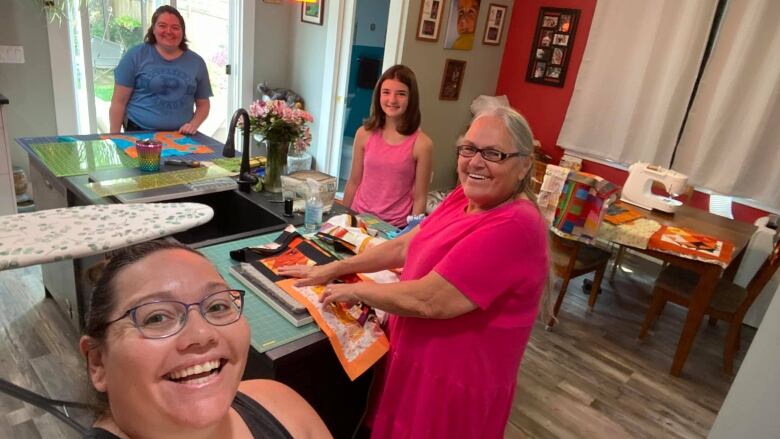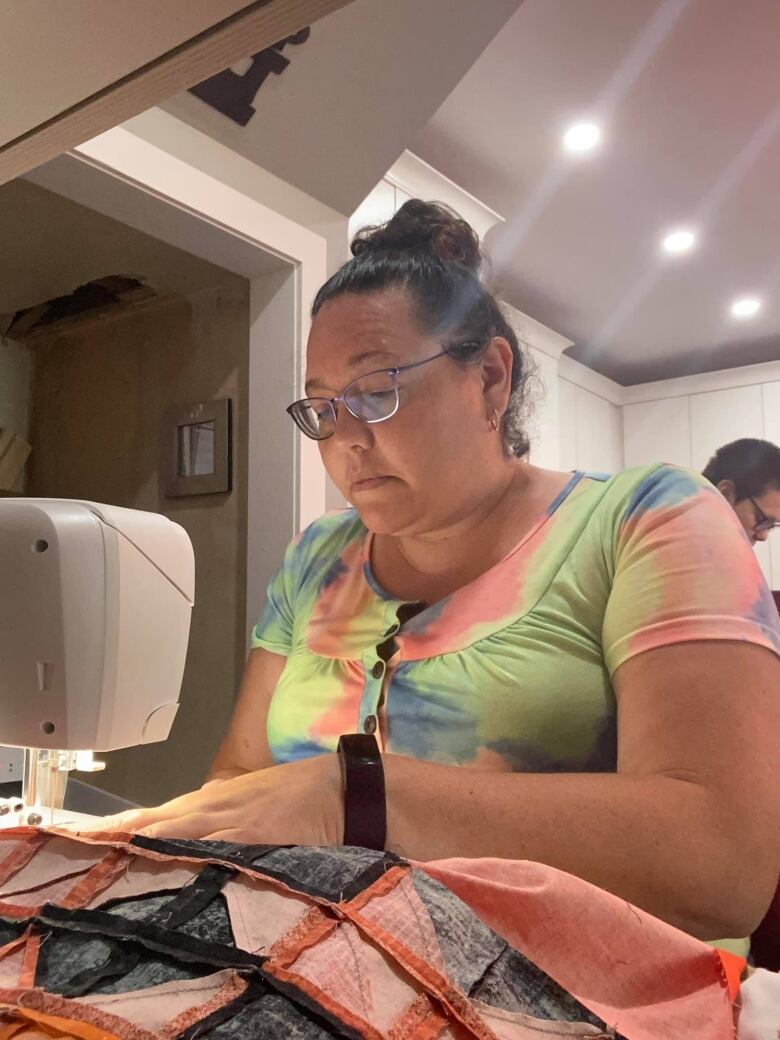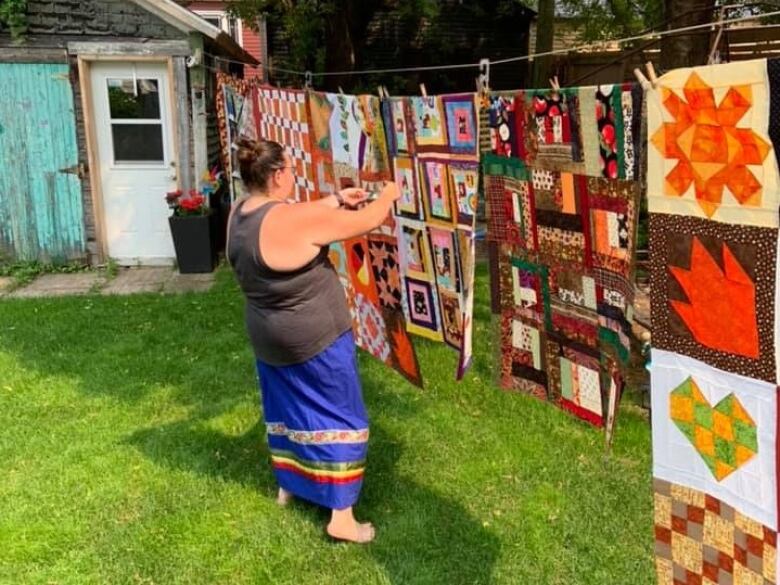'Quilts for Survivors' project in Timmins inspires global support
In just 3 weeks, Vanessa Genier has surpassed her goal to create quilts for residential school survivors

A project that started in Timmins, Ont., to honour residential school survivors, is quickly growinginto a global movement.
Vanessa Genierof Timmins,is collecting quilt blocks, the pieces that make up a quilt, and assembling them for residential school survivors across the country. It's a project she's calling Quilts for Survivors.
Her goal was to collect 215 blocks plus one, a number inspired by the recent reports of unmarked graves at the former Kamloops Indian Residential School. That would allow her to make 18 quilts of 12 blocks each.
However, the Facebook group for the project has received an overwhelming responsewhich continues to grow. She has already beat her goal just three weeks after asking for submissions, well ahead of her expected completion this fall.
"Now, I have over 700 people in that group," Genier says. "I am now getting blocks not just from Canada, but from the U.S., and monetary donations instead from Mexico. There's even a lady in Norway making blocks to send."
The shipments are arriving at Genier's home regularly and she now has enough to make at least 21 quilts. She says she'll continue stitching them together as long as people keep contributing.
'I wanted to do something:'Blankets a part of traditional culture

Genier is from Missanabie Cree First Nation. Her great-grandparents and great-uncles were taken to residential school and she says she's heard many stories about family members hiding in the bush to avoid Indian agents.
"Hearing of all these children that never made it home, just, it was overwhelming," Genier says. "I just said I'd like to make quilts for residential school survivors to help them on their journey and to honour those that never made it home."
Genier is a long-time hobbyist quilter. She has made quilts for each of her five children and says they can serve as "a virtual hug" for those who receive them.
Genier and her mother have shared some of their heritage with fibre artist friendsas they visit her home to help work on the quilts. She says blankets are a part of many Indigenous cultures.
"It's an honour to receive a blanket. We often honour graduates or our elders with gifts of blankets, whether they're handmade or a boughten gift," she says.
Some of the quilt blocks feature Indigenous artwork or represent cultural elements such as clans. Others have used conventional quilt-block designs, but all blocks feature orange in honour of the legacy of residential schools.
Many submitters say they've taken this time to learn more about Indigenous history. Some are sharing quilt patterns in the Facebook group to help others create their designs.

Genier has joined online groups of residential school survivors to find people who wish to receive a quilt. She plans to send them across the country. Inthose provinces whereshe has not yet seen any requests, she will send the quiltswith a note to the chief of a First Nation and ask them to choose someone instead.
Before the quilts get packaged, Genier hangs them on a line and smudges them with the smoke from burning sagea First Nation ceremony that cleanses the quilts of any negativity. This is to help them bring comfort to those who have requested them.
Project gathers widespread support
The independent sewing shops in the Timmins area have all donated materials or their time to help make quilts. Quilters' guilds from near and far have also committed themselves to the project.
Brenda Shewchuk is a member of the Etobicoke Quilters' Guild, near Toronto. Her group was working on a similar project but has changed directions to support Genier's effort instead.
She says projects like this allow people to get involved with complex issues that they might not be able to help directly.
"In a small community, you take food, you show up at the door and you give a hug and whatever, but when this is so dispersed, [you feel] there's not much you can do," she says.
Shewchuk was on the receiving end of a quilt campaign last year, when members of the guild helped create a memory quilt after the death of her granddaughter.
"It, for me, is just the epitome of comfort and love. And when you get those quilts, you just literally can feel the love in every single stitch," she says.
Genier has received support from her employer, which has agreed to cover the shipping costs of any quilts delivered through Purolator.
Her aunt in Hanmer, Ont, near Sudbury, Ont, has created labels for the boxes that explain the project. Genier says she hopes this will educate people and start conversations during each quilt's journey.
Support is available for anyone affected by their experience at residential schools, and those who are distressed by the recent reports.
A national Indian Residential School Crisis Line has been set up to provide support for former students and those affected. People can access emotional and crisis referral services by calling the 24-hour national crisis line: 1-866-925-4419.












_(720p).jpg)


 OFFICIAL HD MUSIC VIDEO.jpg)
.jpg)



























































































